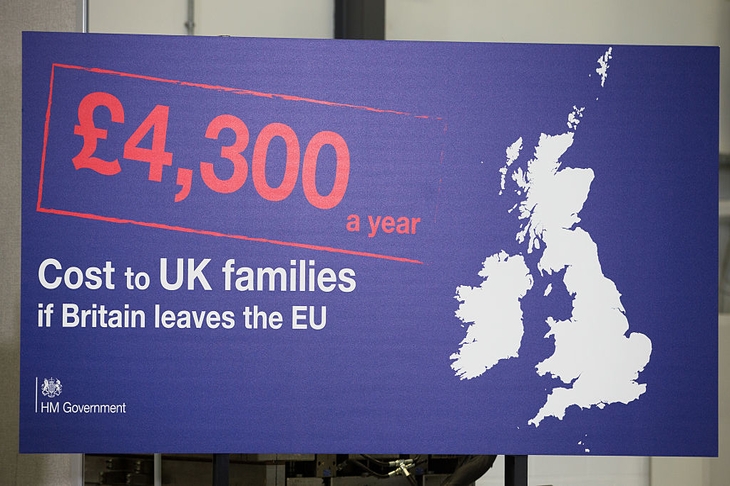Unemployment would soar. Trade would collapse. Factories would close, and house prices would be in freefall. Rewind to the spring and summer of 2016, when Project Fear was at its peak, and we were meant to be shivering in the streets by now, flicking through battered copies of ‘The Road’ for tips on surviving in a post-apocalyptic wasteland as a result of leaving the EU.
Instead, we learned today that the UK economy is doing pretty well. It expanded by 0.5 per cent in the latest quarter, well ahead of forecasts. Even the Governor of the Bank of England, Mark Carney, one of the dark overlords of Project Fear, now agrees that Britain is back in the mainstream of the global economy. The collapse so confidently predicted when we voted to leave has completely failed to materialise.
True, there may have been some spin in those forecasts. George Osborne probably didn’t believe his predictions, mainly because, in my view, he doesn’t really believe in anything he says. We can certainly put Tony Blair in the same category. And yet that was not true of everyone. Most of the mainstream economics profession genuinely believed leaving the EU would hurt the economy. So what lessons should they learn from such a catastrophic mistake? There are three that would be good to start with.
First, they should be far less certain about anything. No major country had ever left the EU before, so no one had any real idea what might happen. It might be good, or it might be bad. The Single Market might add a lot to growth, or it might be just another layer of bureaucracy. Until one country left, we would have no real way of knowing. Without hard evidence, it would be wise not to make any hard predictions.
Next, put far less emphasis on proximity. Most of the forecasts relied on the gravity theory of trade, a fairly well established bit of economic theory which argues that you trade most with big countries that are close to you (it looks smarter when you throw in lots of algebra). But in a digital, service economy, which the UK has increasingly become, that is less and less true. Distance doesn’t mean anything on the web. It may well be that the theory is out of date.
Finally, recognise that trade agreements don’t matter very much. Once you get down to about five per cent tariffs, which World Trade Organisation rules mostly mandate, they are largely irrelevant. In reality, business takes place between customers and companies, and nothing any government does has much influence on it one way or another. Much of the commentary seemed to assume that trade was someone arranged state to state, much as it was in the old Soviet bloc. That is laughably inaccurate. The EU doesn’t make much difference to the economy. Neither will Liam Fox’s trade deals, if he ever gets around to negotiating one. Rates of entrepreneurship, innovation, productivity, skills and demographics are the factors that really determine growth – government just gets in the way.
Whatever else Brexit might be, there can be no question it has turned into a massive forecasting error for the economics profession. Physicists try and learn from their mistakes, and so do biologists. The economists should try and do the same.






Comments